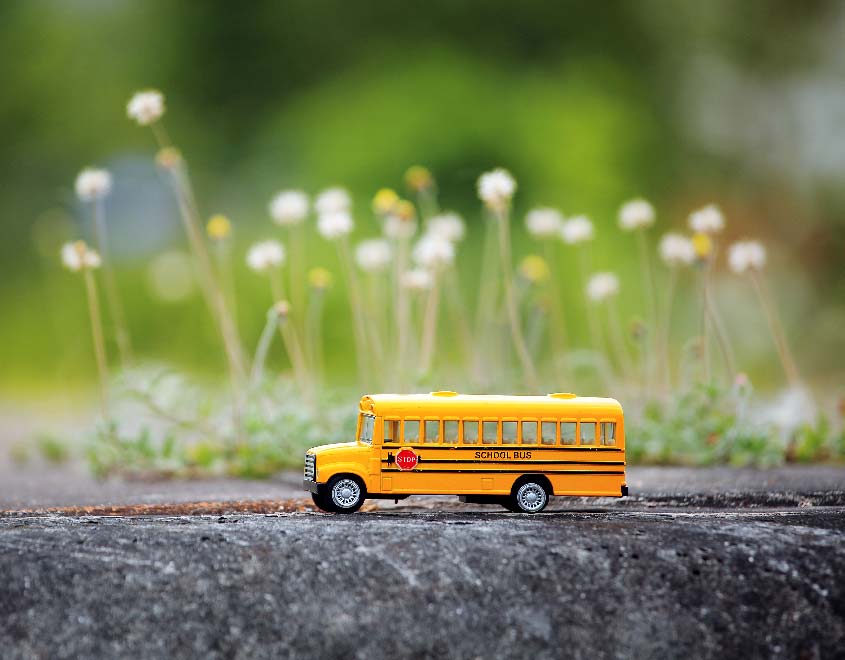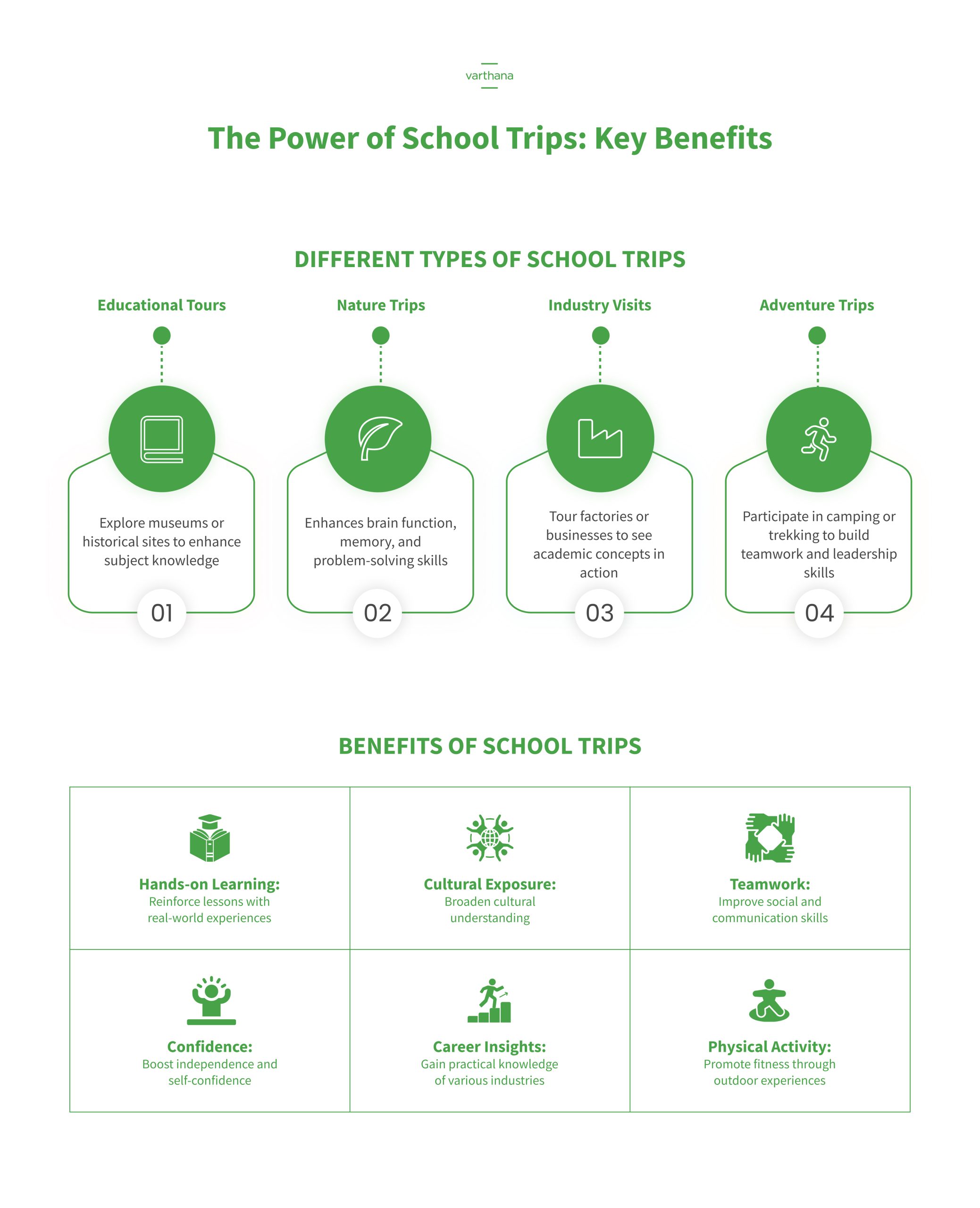
Learning becomes more vibrant when it goes beyond the four walls of a classroom. Field trips give students an opportunity to see, touch, and experience what they are only used to learning from books. A trip to a museum, a farm, a science center, or even a historical location provides students with the ability to connect their classroom lessons with the real world.
Not only do field trips create a more memorable experience for students, but they also allow them to learn actively, form teams, build social interaction, and develop independence and confidence as young learners. This blog will feature 8 benefits of field trips in education, in addition to how school leaders and classroom teachers can incorporate field trips into their educational experiences for a better learning experience.
What is a Field Trip in Education?
A field trip in education is students visiting places outside of school with significance to their lessons. It provides students with a connection to practical learning as they relate theory to practice in museums, places of industry, nature parks, or cultural contexts.
Field Trip vs Field Visit:
-
- The field trip provides students with wider exposure to the place, such as a visit to a museum or cultural centre.
- A field visit is subject-specific and often described in the context of professional or vocational learning, such as an industry tour or a tour of a research laboratory.
Purpose of a field trip:
- To create practical experiences that reinforce the theory learnt in the classroom.
- To stimulate curiosity and opportunities for experiential learning.
- To develop teamwork, social skills, and problem-solving.
A Bengaluru (2025) school reported a 10–15% increase in student participation in international educational trips, illustrating how families have built in value for real-world exposure as part of student learning.
It highlights the increasing advantages of field trip programs, where the purpose of field trip activities is not only focused on academics in class, but also to prepare students with skills for their future. Building on specific field visit opportunities like these in tandem with field trips for students will only enhance and ground the education in more engaging opportunities.
Types of Field Trips: Educational Tours, Nature Trips, Industry Visits, and More
There are different types of field trips planned to match lessons and student growth. Each kind of trip serves a unique purpose and helps students learn beyond books. The advantages of field trip become clear when they experience knowledge in real settings.
- Educational Tours: museums, history sites, science centers
- Nature Trips: zoos, eco-parks, botanical gardens
- Industry & Workplace Visits: factories, IT offices, farms
- Adventure Learning: trekking, eco-camps, geography studies
Together, these types of field trips give students practical exposure while keeping learning engaging and memorable.

Why are Field Trips Important for Students?
Schools in India have recently placed a greater emphasis on school visits as a method of student learning. The percentage of school-aged students visiting the Indian Museum climbed from 18.11% in 2022-23 to 21.53% in 2024-25. This increased amount highlights the importance of field trips as a legitimate method of student learning through real-life experiences. Through school visits, students can learn:
- Hands-on Learning – Students can relate their classroom knowledge to their reality (learning about scientific concepts through doing an experiment or learning about historical facts through monuments).
- Cultural Exposure – Giving students access to heritage sites, art galleries, etc., fosters respect for tradition and diversity, community and cultural values.
- Teamwork – Performing group activities on field trips fosters teamwork and bonding with peers and cooperation; it also improves problem-solving ability.
- Confidence – When students experience and explore environments that are new to them, they develop independence and confidence in themselves.
- Career awareness – When students venture out into industry, they are able to gain a certain level of exposure to the real work part of a job and glean career path ideas.
- Physical activity – Students are generally on some sort of outdoor trip that keeps them active while they learn.
These are the practical advantages of a field trip experience that serve to further the learning and individual development of students alike.
Planning a Successful Field Trip: A Teacher’s Guide
A successful field trip is built on careful planning at every stage:
- Establish objectives: Tie the visit back to your class lessons.
- Get approval: Involve parents, and school, and any other authority.
- Select a destination: Choose a location appropriate for the subject matter and appropriate for the age group.
- Plan the logistics: Schedule transport, food, and entry passes.
- Ensure health and safety: Have emergency contacts and first aid on hand.
- Engage your students: Provide them with roles and ask them to take notes.
- Follow-up after the trip: A group discussion, assignments, and feedback are helpful.
Safety Measures for Field Trips
When planning a field trip, safety is the top priority. Schools have to make sure that they do what they can to ensure students are safe.
- Sufficient supervision: Set a teacher-to-student ratio that is high enough to observe what is occurring
- Emergency preparedness: Always take first-aid kits, ensure you have up-to-date contact lists of students, and, where appropriate, consider using a local guide.
- Clear rules: Have an explanation of behavior and safety rules for students before you leave.
- Permission & insurance: Always get signed consent for students and ensure you have the relevant insurance needed.
- Pre-trip briefing: Go over the do’s and don’ts to manage expectations.
Post-Field Trip Duties and Assessment
It is important for teachers to help students make the connections between experiences and learning; thus, after each field trip, these discussions may include:
- Sharing feedback: Students can talk about what they learned.
- Teaching feedback: Compare goals to the results.
- Student involvement: Any project or report on your trip.
- Make a class connection: Make learning links from trip reflections.
How to Fund Field Trips: School Loans & Financial Support
Field trips are valuable learning experiences, and as a good educator, you will want to offer your students some field trip experiences to enrich their learning, but you may be concerned about the costs to the school.
Utilizing a school loan as a support mechanism can help. For example, in India, public sector banks approved ₹28,700 crore worth of education loans in FY24 alone. This is a clear indicator that schools and families are turning to loans to finance educational opportunities.
- Extend a school loan: if school leaders take a loan for a new classroom or new mode of transportation, they could also include funding for other trip-related costs, like buses and entry fees, in the same loan.
- P.T.A. support: Parents and teachers may contribute together in smaller amounts to support the funding of the trip.
- C.S.R. funding: Local businesses may support the trip monetarily because they are sponsored by their corporate social responsibility fund.
- Fundraising events: Students may engage in fundraising activities or cultural celebrations to support the trip.
Conclusion
The benefits of field trips in education demonstrate the ways in which students acquire new skills, knowledge, and curiosity as a result of the removal of barriers and learning beyond walls. Such experiences can be made effective only when the schools are provided with a proper support system, better infrastructure, modernized labs and learning activity parks, and innovative teaching methodologies.
Such initiatives help teachers in relating learning to real-world issues and make an impact on students. With Varthana’s School loans, educators become empowered to deepen learning in classrooms and improve their infrastructure for enriching experiences outside. Contact us now.
FAQs
1. What are the benefits of an educational tour?
Educational tours improve knowledge retention, provide real-world exposure, and encourage social and emotional learning.
2. What is the aim of an educational trip?
The aim is to make learning interactive, connect theory with practice, and enhance student motivation.
3. What is the meaning of an educational trip?
An educational trip is a structured school outing designed to enrich classroom learning with practical experiences.
4. What is the conclusion of an educational tour?
The conclusion is that tours broaden student horizons, improve subject understanding, and develop life skills.
5. How do field trips improve social skills?
By encouraging group tasks, peer discussions, and teamwork, field trips strengthen cooperation and communication.
6. What is the difference between a field trip and a field visit?
Field trips are general learning excursions, while field visits are subject-specific and often career/industry focused.
7. Why are field trips important in education?
They enhance engagement, support experiential learning, and nurture holistic development.
8. What are the main types of field trips schools organize?
Educational tours, nature trips, industry visits, cultural tours, and adventure trips.
9. How do field trips contribute to experiential learning?
Students learn by observing, interacting, and applying knowledge in real-life contexts.
10. What safety precautions should teachers follow on field trips?
Supervision, emergency planning, first-aid readiness, and clear behavioral guidelines.
11. Can field trips help in developing cultural awareness?
Yes, they expose students to diverse traditions, heritage, and values, fostering respect and empathy.
12. How can schools fund field trips?
Through school loans, PTA contributions, sponsorships, and fundraising initiatives.





Social